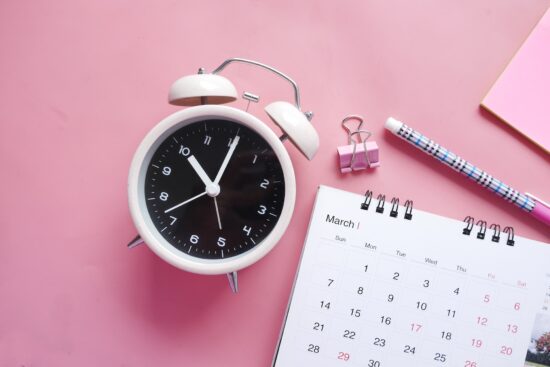
Do you find yourself often waking up in the middle of the night, unable to fall back to sleep? Are your 3 a.m. rendezvous with the ceiling becoming a nightly routine? If you’re having trouble sleeping through the night, we’re here to help you rescue your beauty sleep.
Sounds like a dream, doesn’t it?
There could be many reasons why you find yourself awake at odd hours. Stress, insomnia, aging, medications, and even poor lifestyle choices can disrupt your natural sleep cycle. But don’t worry, Pavlok can be a powerful sleep aid in helping you to better understand your sleep habits and patterns, and act as a tool to help you sleep much better, uninterrupted. 😴
Understand Why You’re Waking Up in the Middle of the Night
The frustration of waking up in the middle of the night is an experience shared by many. While it’s perfectly normal to briefly wake up at some point during your sleep cycle, problems arise when these disruptions become prolonged, causing sleep deprivation and impacting your daily life.
Reasons for waking up in the middle of the night can vary from stress to medical conditions (and medications) to poor lifestyle habits. Just as the roots of a tree extend deep into the ground, your sleep problems can also have hidden causes that are intertwined with various aspects of your health.
For example, conditions like sleep apnea, restless leg syndrome, GERD, and even menopause can cause you to wake up in the middle of the night. Certain medications, including antidepressants, beta-blockers, and over-the-counter cold remedies, can also disrupt your sleep.
Moreover, age plays a role in our sleep quality as well. As we age, we spend less time in the deeper, more restorative stages of sleep, making us more prone to nighttime awakenings. Not to forget, poor sleep hygiene – including late-night screen time, irregular sleep schedule, and consuming caffeine or alcohol near bedtime – can also lead to waking up in the middle of the night.
By pinpointing the exact cause or combination of factors disrupting your sleep, you can devise a tailored strategy to combat your midnight wake-up calls.
Establishing a Consistent Sleep Schedule
When it comes to preventing waking up in the middle of the night, establishing a consistent sleep schedule is a linchpin. Our body operates on a circadian rhythm – a 24-hour internal clock that cycles between sleepiness and alertness. This rhythm thrives on regularity, and following a consistent sleep-wake schedule can train your body to sleep through the night.
For instance, if your ideal wake-up time is 7 a.m., count backward to determine a suitable bedtime that allows for 7-9 hours of sleep, the duration recommended by the American Academy of Sleep Medicine. This means, if you need 8 hours of sleep, your bedtime should be around 11 p.m. Consistency is key here – make an effort to stick to these times, even on weekends.
Optimizing Your Sleep Environment
Creating an ideal sleep environment can be likened to creating a personal sanctuary – a haven where sleep is the prime objective. This environment should engage all your senses in a way that promotes relaxation and sleep, hence reducing the chances of waking up in the middle of the night.
Light 💡
Ensure your room is as dark as possible. Darkness triggers the brain to produce melatonin, a hormone that regulates the sleep-wake cycle. You can use blackout curtains or an eye mask to block out any light. In fact, research shows that exposure to light during sleep can suppress melatonin production and affect sleep quality.
Noise 🎧
Sudden or loud noises can cause you to wake up in the middle of the night. Consider using a white noise machine, a fan, or earplugs to mask external sounds. White noise is a consistent noise that comes out evenly across all hearable frequencies. When a noise wakes you up in the night, it’s not the noise itself but the sudden change or inconsistencies in noise that jolts you. White noise can help to mask these inconsistencies.
Temperature 🌡️
The National Sleep Foundation recommends a bedroom temperature of 60-67°F (15-19°C) for optimal sleep. You may need to experiment to find what’s most comfortable for you. An overly warm room can increase your chances of waking up in the middle of the night.
Comfort 🛌
Comfort in your sleep environment extends to your mattress, pillows, and bedding. Ensure your mattress and pillows are supportive and comfortable, and choose breathable, lightweight bedding to help regulate your body temperature.
Editor’s Note: We provided a link to the best cooling mattresses in the July 7 edition of the 5 Zaps newsletter, which you can read here.
Mindful Eating and Drinking
Just like a car runs best with a specific type of fuel, the food and drink you consume can significantly impact your sleep quality and the likelihood of waking up in the middle of the night.
Caffeine and Alcohol ☕️🍷
Both substances can interfere with your sleep. Caffeine, a stimulant, can keep you awake while alcohol, although initially sedating, can cause wakefulness as it is metabolized. Limit your caffeine intake to the morning hours and moderate your alcohol consumption.
The American Academy of Sleep Medicine recommends avoiding caffeine at least six hours before bedtime and refraining from drinking alcohol close to bedtime.
Heavy Meals 🍝
Eating heavy or spicy meals close to bedtime can lead to discomfort and disrupt your sleep. Aim for a lighter dinner and finish eating at least 2-3 hours before bed. If you’re still hungry, opt for a small snack with complex carbs and protein, like whole-grain crackers with a slice of turkey.
Hydration 💧
While hydration is essential, drinking large amounts of fluids before bed can lead to middle-of-the-night bathroom trips. Try to get most of your daily water intake earlier in the day, reducing intake 2-3 hours before bed.
Regular Exercise
Regular physical activity is like a magic bullet when it comes to health benefits, and better sleep is one of them. Exercise can help you fall asleep faster, spend more time in deep sleep, and wake up less often throughout the night.
While the optimal timing of exercise depends on your personal routine and preference, it’s generally a good idea to finish exercising at least three hours before bedtime. This allows your body temperature, heart rate, and hormone levels – all of which get boosted during a workout – enough time to return to their normal levels, setting the stage for better sleep.
But don’t fret if you can’t fit in a full workout each day. Even light activities like walking or stretching can help. Remember, the goal is to be consistent with your exercise routine to reap the sleep benefits and reduce the chances of waking up in the middle of the night.
Managing Stress
Stress manifests itself in various ways, affecting our sleep in subtle yet impactful manners. It could be work-related anxiety, the emotional strain of personal relationships, or the pressure of financial uncertainties that startles you awake at night. Identifying your primary stressors and addressing them directly is the first step towards better sleep health.
If stress, negative thoughts, or worry keeps you waking up in the middle of the night, it might be time to explore stress management techniques. This could include relaxation strategies like yoga, deep-breathing exercises, or meditation. Incorporating a relaxing routine before bed can signal your body that it’s time to sleep, minimizing the chance of waking up in the middle of the night.
Easier said than done, you might think. But this is where help from Pavlok truly shines.
How Pavlok Can Help You Stop Waking Up in the Middle of the Night
Pavlok’s can be fully customized to help you tackle sleep and stress. For example, establishing a consistent and effective bedtime routine is a critical part of optimizing sleep health.
Pavlok can help guide you through a series of relaxing evening routines, from alerting you when it’s time to initiate a digital detox, to helping you wind down at a consistent time every night, thereby promoting a regular sleep schedule that aligns with your body’s circadian rhythm.
Pavlok’s deep breathing and meditation reminders can also be a pivotal tool in fostering relaxation before bed. Consistent practice of mindfulness exercises grounds the mind and can reduce overall stress levels. Just 10 minutes of mindfulness before bed can improve your sleep and the stage for restful nights and early wake-up calls.
Speaking of early wake-up calls, that’s where Shock Clock 3 takes over.
Waking up consistently at the same time every morning helps to reinforce your sleep-wake cycle, resulting in higher quality sleep and reducing the chances of you waking up in the middle of the night.
The Shock Clock uses a variety of stimuli – vibrations, chimes, and yes, the almighty ‘zap’ to rouse you from sleep at the optimal time in your sleep cycle. Unlike conventional alarm clocks that allow you to hit the snooze button endlessly, the Shock Clock’s unique ‘zap’ function provides a safe electric stimulus that wakes you up on time feeling energized and refreshed.
You can even customize your Shock Clock to wake you up with a gradual escalation of stimuli. It can start with a vibration, then move to a chime, and finally to a ‘zap’, if necessary. This way, it’s not just an alarm clock; it’s a tool for training your body to maintain a consistent sleep-wake schedule.
Over time, this conditions your body to wake up at the same time naturally.
Conclusion:
With the combined power of Pavlok and Shock Clock, you can create an effective daily sleep routine. This routine reinforces your body’s natural sleep-wake rhythm, optimizes sleep quality, and drastically reduces the chances of you waking up in the middle of the night.
Sweet dreams! 😴💭🌙










